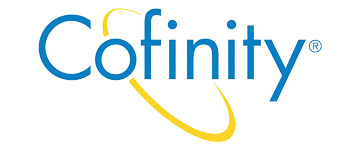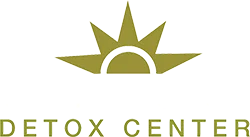Understanding Alcohol Detox: The First Step Toward Recovery
Detoxification is a critical step in the journey toward recovery from alcohol addiction. As the initial phase of any comprehensive addiction treatment plan, detox sets the foundation for long-term sobriety. At Chattanooga Detox Center, we offer a safe, comfortable, and supportive environment for individuals beginning this crucial process. Our detox centers in Chattanooga, Tennessee, provide the expertise and care necessary to help you or your loved one start the path to healing the right way.
What Happens During Alcohol Detox in Chattanooga?
During alcohol detox, individuals undergo the withdrawal phase of addiction recovery in a medically supervised setting. Withdrawal symptoms can range from mildly uncomfortable to severe and life-threatening, depending on various factors such as the length and severity of the addiction, overall health, and the presence of co-occurring disorders.
Common withdrawal symptoms include:
- Nausea and vomiting
- Headaches
- Anxiety and depression
- Sleep disturbances
- Profuse sweating
- Tremors
- Mental fog and confusion
At Chattanooga Detox Center, our inpatient rehab level of care ensures that clients reside within our facility throughout the detox process. This residential approach provides several benefits:
- Safety from Relapse: Without access to alcohol, clients are less tempted to relapse during this vulnerable time.
- 24/7 Medical Support: Our medical staff is available around the clock to manage physical symptoms and ensure comfort.
- Medication-Assisted Treatment (MAT): Some clients may benefit from medications that ease withdrawal symptoms and reduce cravings.
- Peer Support: Being surrounded by others who are also on the path to recovery fosters a sense of community and understanding.
Alcohol Detox and Withdrawal Timeline
Alcohol withdrawal symptoms are among the most intense and potentially dangerous. For those with long-term alcohol addiction, severe withdrawal symptoms—known as delirium tremens (DTs)—can even be life-threatening. It’s essential to undergo detox under professional supervision to manage these risks effectively.
Typical alcohol detox timeline:
First 4 to 12 Hours
- Mild withdrawal symptoms begin to appear.
- Individuals may experience anxiety, irritability, and restlessness.
- Cravings for alcohol may intensify.
24 to 72 Hours
- Symptoms worsen and usually peak around the third day.
- Physical symptoms include vomiting, sweating, tremors, and headaches.
- Psychological symptoms like depression and heightened anxiety may occur.
Day 3 and 4
- If delirium tremens develop, they typically appear by the third day.
- Symptoms can include severe confusion, hallucinations, rapid heart rate, and high blood pressure.
- Professional monitoring is crucial during this period.
Day 5 to 7
- Acute withdrawal symptoms begin to taper off.
- Some symptoms may linger but are generally milder.
- Ongoing support helps manage any persistent psychological symptoms.
Note: While most individuals see significant improvement after a week, some may experience prolonged withdrawal symptoms, especially with severe addictions. Continuous medical care ensures safety and comfort throughout this phase.
Call (423) 455-9887
Insurance Can Cover Up To 100%
We Accept Most Insurance. Please Note We Are Not Affiliated or Endorsed By Insurance Companies.
Why Professional Detox Is Essential
Attempting to detox from alcohol at home is not recommended due to the potential severity of withdrawal symptoms. Without medical supervision, individuals risk serious health complications, including seizures and cardiac events. Additionally, the temptation to relapse is higher without the structured environment and support that a professional detox center provides.
At Chattanooga Detox Center, we offer:
- Medical Monitoring: Immediate intervention if severe symptoms arise.
- Emotional Support: Counseling and therapy to address the psychological aspects of withdrawal.
- Safe Environment: A substance-free setting that reduces the risk of relapse.
What Happens After Detox Ends?
Detox is the first step, but it’s only part of the recovery journey. After detoxification, treatment focuses on addressing the underlying causes of addiction and developing strategies to maintain long-term sobriety.
Post-detox options include:
- Inpatient Rehabilitation: Continuing residential care to deepen therapeutic work without outside distractions.
- Outpatient Programs: For those with supportive home environments, programs like Partial Hospitalization (PHP) or Intensive Outpatient (IOP) offer flexibility while providing structured support.
- Aftercare Planning: Developing a personalized plan that may include counseling, support groups, and ongoing medical care.
The Risks of Detoxing at Home
Detoxing at home poses significant risks:
- Medical Emergencies: Without professional supervision, severe withdrawal symptoms can become life-threatening.
- High Relapse Rates: Easy access to alcohol increases the likelihood of relapse during the vulnerable withdrawal phase.
- Overdose Risk: Returning to alcohol use after a period of abstinence can lead to consuming amounts that the body can no longer tolerate, increasing the risk of overdose.
Seeking professional help ensures safety and increases the chances of successful, long-term recovery.
Start Your Journey to Recovery Today
Detox is a challenging but vital step toward reclaiming your life from alcohol addiction. At Chattanooga Detox Center, we are committed to providing compassionate care and comprehensive support throughout this process.
Ready to Escape Addiction? Let’s Get Started.
Our admissions coordinators are available 24/7 to help you take the first step.
- Call Us Now: (423) 455-9887
- Verify Insurance: Click Here
- Email: info@chattanoogadetoxcenter.com








 Gupta Brings Over A Decade Of Experience To Chattanooga Detox Center. Dr. Gupta Specializes In Treating Adults With Substance Use And Psychiatric Disorders. His Extensive Clinical Experience Includes Medication-Assisted Treatment, Medical-Surgical Consultation And Psychiatric Stabilization In Acute Settings. Dr. Gupta Completed His General Psychiatry Residency At The University Of Connecticut Followed By A Fellowship In Addiction Psychiatry At Emory University. He Is Double Board-Certified In Both Of These Specialties. Dr. Gupta Is Passionate About His Work In Substance Abuse And Is An Advocate For Reducing The Stigma Surrounding Mental Illness.
Gupta Brings Over A Decade Of Experience To Chattanooga Detox Center. Dr. Gupta Specializes In Treating Adults With Substance Use And Psychiatric Disorders. His Extensive Clinical Experience Includes Medication-Assisted Treatment, Medical-Surgical Consultation And Psychiatric Stabilization In Acute Settings. Dr. Gupta Completed His General Psychiatry Residency At The University Of Connecticut Followed By A Fellowship In Addiction Psychiatry At Emory University. He Is Double Board-Certified In Both Of These Specialties. Dr. Gupta Is Passionate About His Work In Substance Abuse And Is An Advocate For Reducing The Stigma Surrounding Mental Illness. President Alec Pagliarulo has spent his entire career working in the addiction and mental health community. He has worked in various roles, including benefits analyst, admissions coordinator, and business development specialist. Alec is passionate about providing the best possible care to individuals struggling to overcome addiction. He aims to create positive recovery experiences, including programs rooted in integrity that pave a path for long-term growth.
President Alec Pagliarulo has spent his entire career working in the addiction and mental health community. He has worked in various roles, including benefits analyst, admissions coordinator, and business development specialist. Alec is passionate about providing the best possible care to individuals struggling to overcome addiction. He aims to create positive recovery experiences, including programs rooted in integrity that pave a path for long-term growth. Carter is a successful real estate and private equity investor. Prior to founding Chattanooga Detox Center, Carter worked in insurance brokerage in New York City and as a real estate private equity acquisitions specialist in Atlanta. He completed his undergraduate degree at Washington & Lee University and has an MBA from the UNC Keenan-Flagler Business School.
Carter is a successful real estate and private equity investor. Prior to founding Chattanooga Detox Center, Carter worked in insurance brokerage in New York City and as a real estate private equity acquisitions specialist in Atlanta. He completed his undergraduate degree at Washington & Lee University and has an MBA from the UNC Keenan-Flagler Business School.